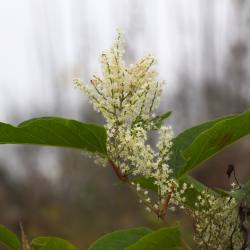Japanese Knotweed, a highly invasive plant species, has become a notorious nuisance for property owners across the UK. Its rapid growth and destructive nature can cause significant damage to buildings, structures, and land. But can you take legal action against someone for not treating Japanese Knotweed on their property?
In short, the answer is yes, but with certain caveats. Before delving into the legal aspects, let’s understand what Japanese Knotweed is and why it’s such a concern.
Understanding Japanese Knotweed
 Japanese Knotweed (Fallopia japonica) is a perennial plant native to East Asia. Introduced to the UK in the mid-19th century as an ornamental plant, it has since spread rapidly, colonising various habitats and causing extensive damage to ecosystems and properties.
Japanese Knotweed (Fallopia japonica) is a perennial plant native to East Asia. Introduced to the UK in the mid-19th century as an ornamental plant, it has since spread rapidly, colonising various habitats and causing extensive damage to ecosystems and properties.
This plant is known for its vigorous growth, with stems reaching heights of up to three meters. Its rhizomes can penetrate deep into the ground and spread horizontally over several metres, causing damage to foundations, drains, and walls. Moreover, Japanese Knotweed is resilient and capable of regenerating from tiny stem fragments, making it incredibly challenging to eradicate. The presence (or historic presence) of knotweed can therefore affect the value of a property, its saleability and the ability to obtain insurance.
Legal Ramifications of Allowing Japanese Knotweed to Spread
Property owners have a legal responsibility to prevent Japanese Knotweed from spreading onto neighbouring properties. Failure to control its growth can result in claims of private nuisance, where one party’s activities or conditions on their land substantially interfere with the use and enjoyment of neighbouring properties.
However, any damages claim arising from Japanese Knotweed encroachment needs to prove that the diminution of value to the affected land or property was due to a breach of duty by the neighbouring owner. A recent Supreme Court case, Davies v Bridgend County Borough Council, sheds light on the complexities of such claims.
In Davies, the court highlighted the importance of causation in determining liability. The central issue revolved around whether the diminution in value of the claimant’s land was caused by the defendant’s breach of duty in private nuisance. The court ultimately found that the fall in value had occurred prior to the defendant’s conduct, leading to the dismissal of damages claims.
Lord Stephens noted that the diminution in value would have occurred regardless of the defendant’s breach of duty, as the Japanese Knotweed was already present on the claimant’s land before the breach occurred. Similarly, Lord Burrows highlighted that the claimant failed to prove that reduction in the value of his property was caused by a breach of duty on the part of the Council.
Established Principle
The judgment in Davies, confirms that to claim damages for the diminution in the value of a property due to the use of the land by the neighbour, then the claimant must prove causation. In other words, the claimant must prove that “but for” the act or omission of the defendant, the reduction in the value of the property would not have occurred.
Seeking Legal Guidance – Property Litigation
While legal action against someone for failing to treat Japanese Knotweed is possible, it requires careful consideration of legal principles and evidence. If faced with a property nuisance claim involving Japanese Knotweed or any other issue, seeking specialist legal guidance from experienced professionals is crucial. Speak to a DTM Legal Property Litigation team member for effective advice on protecting your interests by calling 0151 321 0000 or 01244 354 800.






